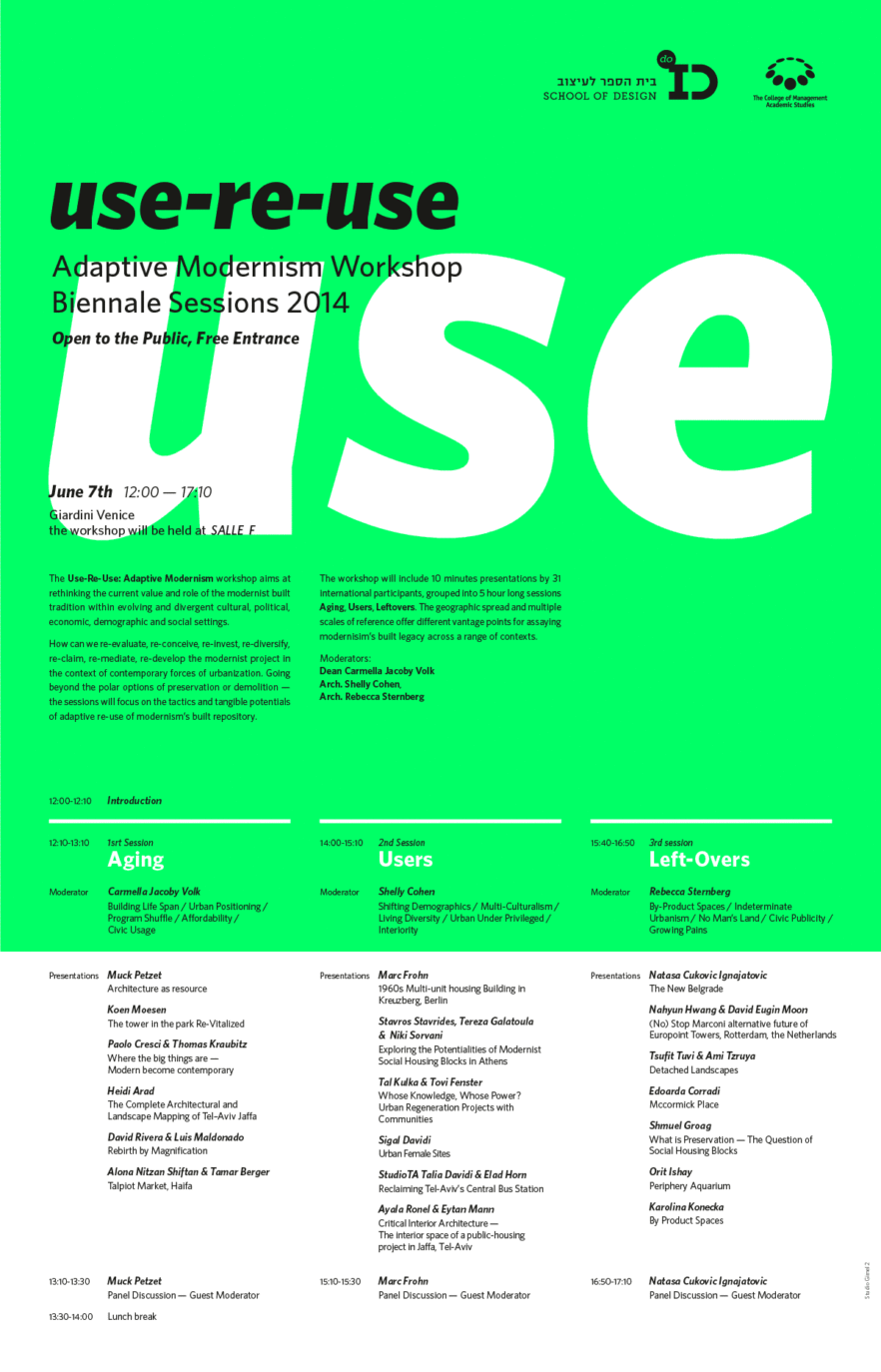With the ‘Modernist Project’, like baby-boomers, now approaching late-life, we are facing the challenge of what to do with canonic (and non-canonic) modernist buildings. Designed and built throughout the 1950-70’s much of this building stock materialized conceptions of the ‘modernist city’ with an array of housing, civic and public architectures.
The “Use-Re-Use: Adaptive Modernism” workshop aims at rethinking the current value and role of the modernist built tradition within evolving and divergent cultural, economic, political and social settings.
Experiencing a dramatic shift in the urban realities, occupancies, uses, economics and physical upkeep of the building stock of the near past, ‘Use-Re-Use’ calls for a highly contextual and evolving trajectory for buildings and fabrics conceived and built under the guise of a “universal” modernist disposition.
How can we re-evaluate, re-conceive, re-invest, re-diversify, re-claim, re-mediate, re-develop the modernist project in the context of contemporary forces of urbanization.Going beyond the polar options of preservation or demolition – the sessions will focus on the tactics and tangible potentials of adaptive re-use of modernism’s built repository.
The workshop will include 10 minute presentations by 27 international participants, grouped into 3 hour round tables: “Aging”, “Users”, “Leftovers”. The geographic spread of presentations and multiple scales of reference will offer different vantage points for assaying modernism’s built legacy across a range of contexts.
- Can existing modernist buildings serve as repository for a range of new civic uses?
- What are the economic and architectural vehicles for enabling reuse of civic buildings by these new users?
- Does reuse offer a means of better spatial representation of social needs not met by market forces?
- can fixed programs undergo time sharing to meet new economic demands?
